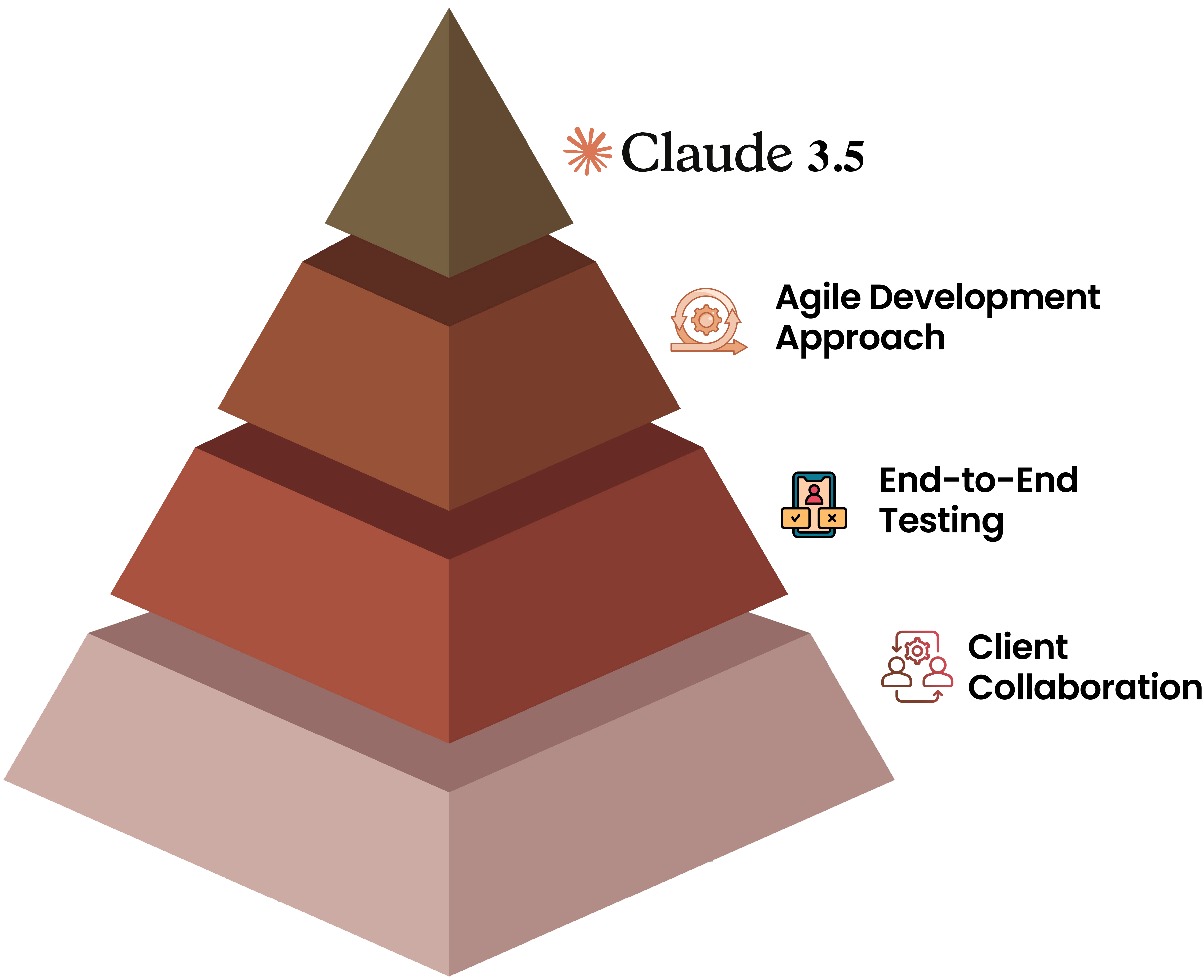The AI Solution Implementation Approach We Followed
- Fine-Tuned Claude 3.5 Sonnet for personal injury law applications.
- Agile Development using sprint-based delivery to manage complexity.
- End-to-End Testing through comprehensive UAT cycles.
- Client Collaboration to align features with practitioner needs and workflows.

 Free Sample
Free Sample